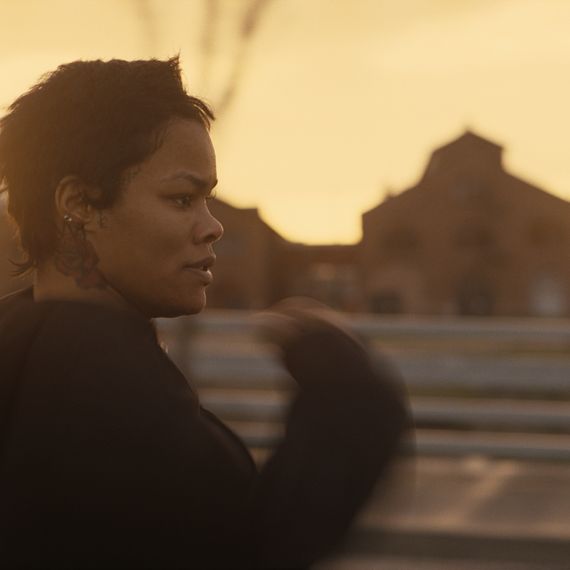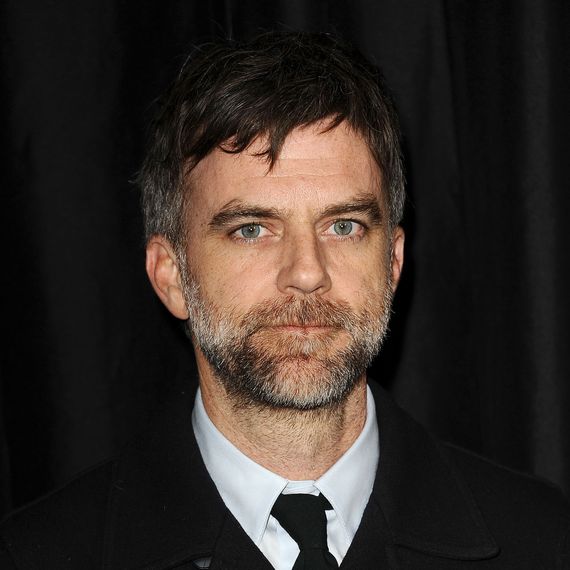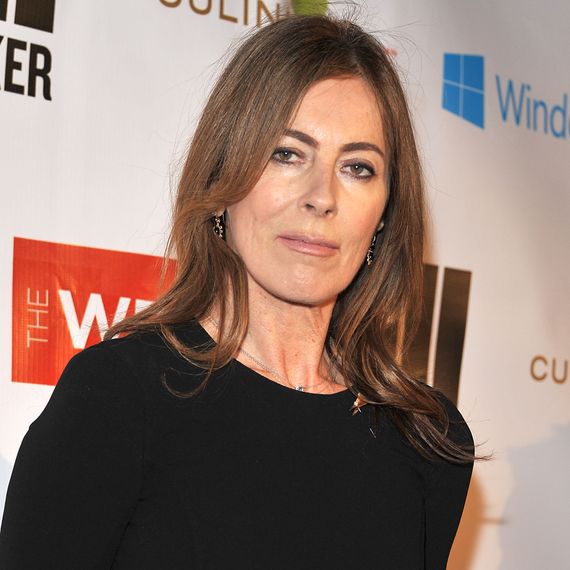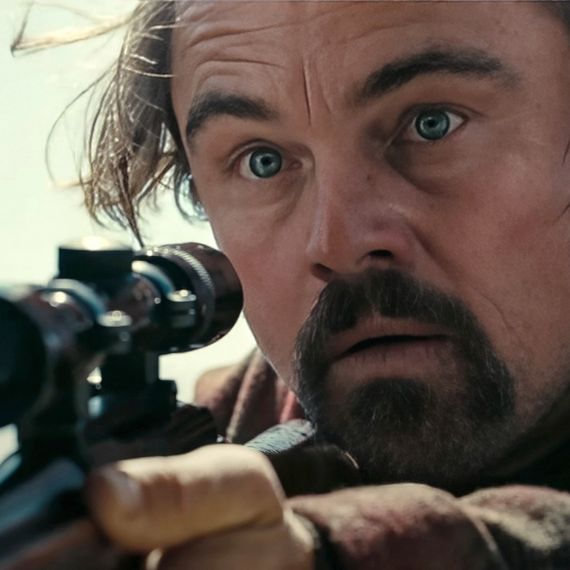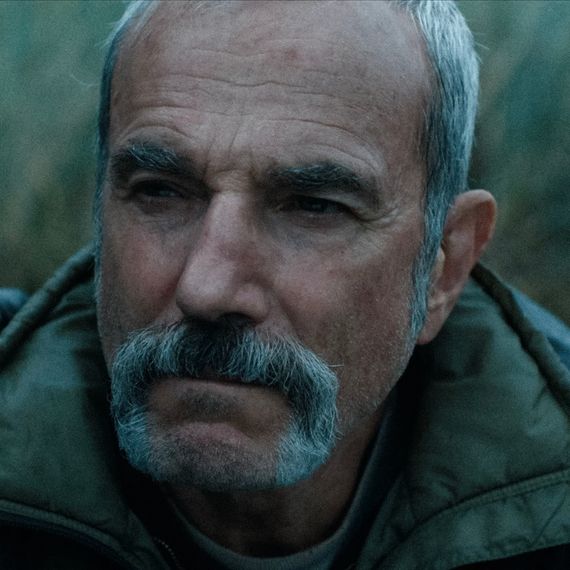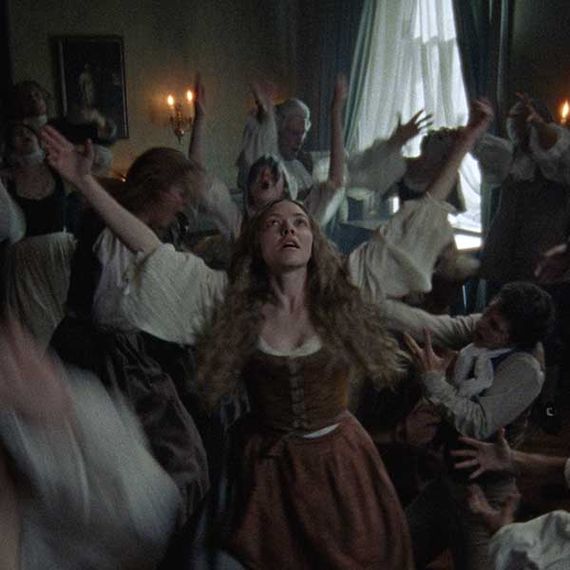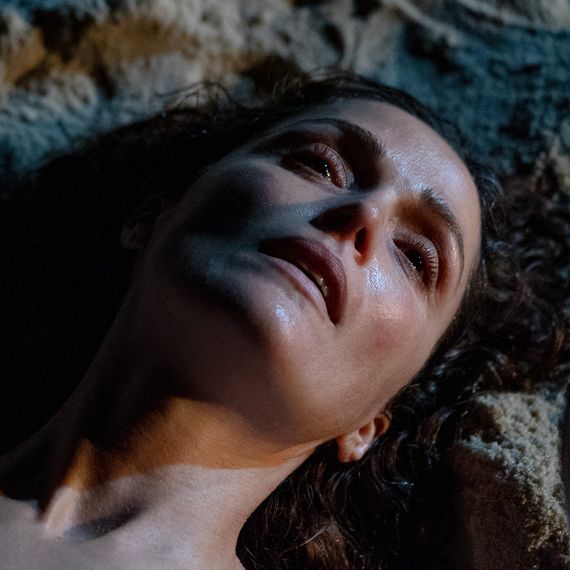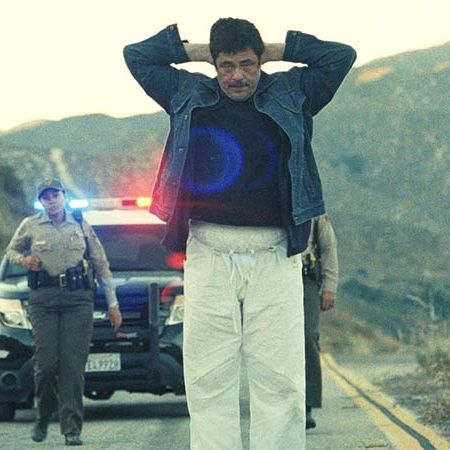Paul Thomas Anderson’s 11 Oscar Losses Explained
How the indie-est of Hollywood auteurs has managed to lose an Academy Award 11 times.
Photo: Merrick Morton/Warner Bros.
We’re barely into October, so any talk of Oscar front-runners should be taken with a blimp-size grain of salt. That caveat aside, One Battle After Another has indeed established itself as an early 2025–2026 Oscar front-runner, thanks to rave reviews and a few unbeatable narratives (including my favorite: This is the movie we need during these uncertain times.)
The other major angle pushing One Battle’s Oscar hopes along is that, well, it may just be Paul Thomas Anderson’s time. Time for him to finally take home an Oscar statue after 30 years as the indie-est of the Hollywood auteurs. (Or maybe the most Hollywood of the indie auteurs.) Since 1997 and Boogie Nights, Anderson’s films have earned 28 total nominations, with 11 of those nominations credited to Anderson himself, either as director, screenwriter, or producer. Thus far, Anderson has gone 0-for-11, placing him right near the top of the all-time list of most notorious Oscar snubees.
The obvious reason why a filmmaker as seemingly respected as PTA can go winless in 11 cracks at the Academy Award is that every Oscar year, and every Oscar category therein, is its own unique beast, each subject to its own campaign-season quirks and voting-body hangups. It should probably be acknowledged that as popular and respected as Anderson is among film enthusiasts and filmmakers themselves, his movies have never been particularly lucrative. And while blockbuster box office is far from a prerequisite to winning Best Picture, the kind of auteurist devotion that PTA has inspired among creatives and cinephiles can just as easily inspire reactionary avoidance among those who don’t get it (or who might rather a less rarefied movie that makes money than a masterpiece that doesn’t).
Were I to buy into any particular theory to explain Anderson’s close-but-no-cigar Oscar history, there’s probably something to the idea that his films have been, by and large, decidedly unsentimental. The Academy historically goes for sentimentalism. Trek back in time and name any notorious, poorly aged Oscar victory, from Driving Miss Daisy to Crash to CODA, and you’ll find heartstrings tugged and tender emotions manipulated. With only a couple (qualified) exceptions, Anderson’s films tend not to pursue those kinds of feelings. If anything, his films fight aggressively against a sentimental reading (There Will Be Blood, The Master, Phantom Thread) or pivot so hard into emotional catharsis that the fabric of reality breaks (Magnolia).
One Battle After Another is almost certainly Anderson’s most broadly appealing, emotionally accessible, and, yes, sentimental movie. Especially in its final few minutes, culminating in a needle drop that is positively normie. Does that mean this year’s Academy members will finally feel moved enough to correct the record on Anderson? It’s too soon to tell, but it’s a better time than any to reconsider those quirky Oscar years past, and what exactly got in the way of PTA.
Boogie Nights was Anderson’s second feature film (after Hard Eight), but it was essentially treated as a debut in the mainstream press, and a towering one at that. It didn’t crack the 1997 Best Picture lineup, but Boogie Nights was a legitimate sensation. Dirk Diggler’s prosthetic member was the year’s most notorious prop, the film spawned two soundtrack albums, and Heather Graham won an MTV Movie Award for Best Breakthrough Performance. In an instant, Mark Wahlberg went from “Marky Mark” to a Hollywood leading man. And Anderson nabbed a Best Original Screenplay nod from the Academy, alongside a pair of performance nominations for Burt Reynolds and Julianne Moore. Looking back, it could be argued that it’s one of Anderson’s more emotionally accessible movies, with a ton of obvious affection for its doomed characters and their wide-eyed ’70s hedonism. Unfortunately, the wunderkind narrative that would have otherwise worked for the 27-year-old Anderson was instead overtaken by the wunderkind narrative around Southie besties Damon and Affleck for Good Will Hunting. And did the absence of a giant prosthetic penis help Good Will Hunting go over more smoothly with an Academy that was far more conservative than it is today? Almost certainly.
The part of PTA’s Magnolia loss that people remember is the cutaway to he and Fiona Apple sulking in their seats while Ball made his thank-yous. But I’d venture to guess Anderson didn’t come close to winning this award. If not Ball, surely the Oscar would have gone to M. Night Shyamalan’s twisty script for The Sixth Sense, or Charlie Kaufman’s deliciously unusual Being John Malkovich, or even Mike Leigh for Topsy-Turvy, as a make-up award for Secrets & Lies losing the screenplay award to Fargo a few years earlier. As large as Magnolia now looms in PTA’s career, it was divisive at the time, confounding as many people as it charmed. Tom Cruise’s electric supporting performance was the one thing everybody seemed to agree was great, while the screenplay nomination felt more like a gentle nod of respect to PTA for taking a big swing.
We can bunch these three together, since they all tell the same story. In a different year, I could have seen There Will Be Blood as a Best Picture winner, as it was such a grand-scale achievement, anchored by an all-timer performance from Daniel Day-Lewis. But a huge part of that film’s narrative existed in tandem with the Coens’ No Country for Old Men: two literary neo-westerns dealing heavily in metaphors about the monstrousness of capitalism, made by darlings of the 1990s indie movement. That both emerged in the same year allowed the films to enhance each other’s place in the Zeitgeist; it also allowed the Coen brothers’ movie to be the comparatively less aloof and esoteric of the two. Neither one of these movies comes close to the kind of sentimentality that the Oscars tend to go for in Best Picture. But after the Oscars reception for 1996’s Fargo — seven nominations and a pair of wins for Frances McDormand and the Coens themselves for their screenplay — the brothers had established themselves as the Academy’s preferred brand of misanthropy.
In a year where the Adapted Screenplay win was up for grabs, Anderson was present merely as a reputation nominee for one of his least popular films. The Imitation Game bested fellow Best Picture nominees Whiplash, The Theory of Everything, and American Sniper here, putting paid to the Weinstein Company’s obnoxious “Honor the man, honor the film” campaign. It’s a measure of how well respected PTA is within Hollywood, particularly the screenwriting branch of the Academy, that he gets Oscar nominations for even the movies that nobody really understands. Given how nonplussed so many people were by his Thomas Pynchon adaptation, you’d be forgiven for thinking Anderson snatched a deserved nomination from Gillian Flynn for her Gone Girl adaptation.
Phantom Thread was a late-breaking entry in the 2017 Oscar race, having bypassed all the fall festivals, and while that gambit doesn’t always work out, in this case, it allowed the film to peak at exactly the right time. While perceived to be on the bubble going into nomination day, Phantom Thread landed six nominations, including surprise nods for Lesley Manville in Best Supporting Actress and PTA himself in Best Director. But even in a wide-open year for Best Picture, Phantom Thread had trouble seeming important enough to be a winner. Burrowing down into the twisted devotion between Woodcock and Alma made for deliciously dark comedy, but the film lacked the kind of hooks enjoyed by the likes of Lady Bird (emotionally resonant mother-daughter story, directed by a woman in the year that Me Too dominated headlines), Get Out (crowd-pleaser with social-commentary gravitas), and eventual winner The Shape of Water, which, yes, was a romance between a woman and a fish, but it touched on everything from the Red Scare to Old Hollywood glamour, all couched in a metaphor about persecuting those who are different. PTA’s poisoned mushroom omelets didn’t stand a chance.
With Licorice Pizza, Anderson returned to his native San Fernando Valley for his spin on a coming-of-age movie, which had people anticipating PTA’s most personal project yet. But a love letter to the Valley starring family friends Alana Haim and Cooper Hoffman still felt more pitched to the director’s base than something truly accessible to a broad Academy audience. Licorice Pizza had enough appeal to pull in another pair of Best Picture and Best Director nominations, but it was neither as formally impressive as Jane Campion’s deconstruction of the western loner in The Power of the Dog nor as nakedly sentimental as Best Picture champ CODA.
Despite not having the broad appeal to win Best Picture, Licorice Pizza’s SoCal appeal might have been enough to move voters toward honoring him with Best Original Screenplay. But sometimes the screenplay awards are de facto consolation prizes, and Belfast was an early-season favorite and seven-time nominee that had faded down the stretch. With nowhere else to honor it, voters rallied around, giving Branagh his long-awaited first Oscar and opting to let Anderson wait a bit longer.
Photo: Warner Bros.
The Oscars are very much not determined by statistics; there are graveyards full of Oscar hopefuls that looked like winners on paper but ultimately didn’t connect with voters for some ephemeral reason or another. That said … the statistical case for One Battle After Another at the moment is strong:
➼ A 95/100 score on MetaCritic, a gaudy number that puts it five points ahead of the next-closest Oscar contenders (Hamnet and Sentimental Value, both at 90).
➼ An A on CinemaScore, which surveys audience members’ reactions after seeing the film.
➼ A $22 million opening weekend, which while not setting box-office records on fire is nonetheless Paul Thomas Anderson’s best opening weekend. If Anderson is going to win an Oscar, the narrative is going to have to be that One Battle After Another is his career’s top achievement to date; this box-office statistic helps sell that narrative.
Photo: Eros Hoagland/Netflix
Meanwhile, the New York Film Festival hasn’t been quite so kind to a former Oscar winner, Kathryn Bigelow. After her A House of Dynamite earned surprising raves when it debuted at the Venice Film Festival a month ago, the critics in New York were singing a different, more derisive tune. “At its press screening, the credits sparked immediate laughter, scoffs, and even some boos from the crowd,” reported Jordan Ruimy at World of Reel.
Anecdotal evidence can only go so far, but at this stage of awards season, perception is always threatening to become reality. No more so than when you’re looking at intra-Netflix competition from the likes of Jay Kelly, Train Dreams, and Frankenstein. If Bigelow’s film falters here in the States, that’s good news for Noah Baumbach’s Jay Kelly — whose own NYFF reception has been respectful if muted — and the Sundance sensation Train Dreams, which hasn’t made many waves among Oscar prognosticators but could benefit from a lack of overall enthusiasm for Netflix’s prestige slate.
Bugonia, Hamnet, It Was Just an Accident, Jay Kelly, No Other Choice, One Battle After Another, Sentimental Value, Sinners, Train Dreams, Wicked: For Good
Photo: Jason LaVeris/2013 Jason LaVeris
Anderson hasn’t been this highly touted for Oscar success since There Will Be Blood, but there’s a long way to go yet. A film as politically charged as One Battle After Another will have to prove it plays as well with traditional Academy types as it does with critics and the Letterboxd set.
Photo: Angela Weiss/Getty Images
Meanwhile, with the Venice heat for A House of Dynamite rapidly cooling in the New York City autumn, Bigelow slides out of the realm of director predictions.
Chloe Zhao, Hamnet; Jafar Panahi, It Was Just an Accident; Paul Thomas Anderson One Battle After Another; Joachim Trier, Sentimental Value; Ryan Coogler, Sinners
Photo: Warner Bros./Everett Collection
DiCaprio’s Best Actor win for The Revenant was so caught up in the narrative that he was overdue — not to mention the “he deserves it for eating bison liver!” foolishness — that it made it hard to actually appreciate Leo the performer. Maybe if he rides One Battle After Another to a second Oscar, we can spend this campaign talking about how good he’s become at shifting dextrously from madcap comedy to tearful-breakdown drama.
Photo: Focus Features
The last time Paul Thomas Anderson directed a Best Actor nominee, it was also Daniel Day-Lewis’s last film — Phantom Thread. Now, eight years later, he’s back starring in his son Ronan’s directorial debut, Anemone. The prospect of DDL’s return to the Oscar lineup in an all-family affair is indeed a delicious one, but after last week’s world premiere at the New York Film Festival, father Daniel will have to overcome son Ronan’s poor reviews to make it happen.
George Clooney, Jay Kelly; Leonardo DiCaprio, One Battle After Another; Dwayne Johnson, The Smashing Machine; Michael B. Jordan, Sinners; Jesse Plemons, Bugonia
Photo: Venice Film Festival
Searchlight ended weeks of speculation by striking a deal to distribute director Mona Fastvold’s Mayflower musical The Testament of Ann Lee, which for the most part impressed at Venice and Toronto, particularly when it came to Amanda Seyfried’s turn as the titular founder of the Shaker faith. Searchlight only has the Bradley Cooper–directed Is This Thing On and the Brendan Fraser–starring Rental Family this season, which means they’re free and clear to push Seyfried to the hilt when they open the film later this year.
Photo: A24
Best Actress doesn’t feature as deep a bench of contenders as Best Actor does this year, but Seyfried’s physically and emotionally arduous performance will be tough competition for the likes of Rose Byrne (If I Had Legs I’d Kick You), Julia Roberts (After the Hunt), Sydney Sweeney (Christy), and Jennifer Lawrence (Die My Love).
Jessie Buckley, Hamnet; Cynthia Erivo, Wicked: For Good; Renate Reinsve, Sentimental Value; Amanda Seyfried, The Testament of Ann Lee; Emma Stone, Bugonia
Photo: Warner Bros.
And while we’re all systems go for One Battle (don’t worry, the high will wear off soon and we’ll know better where things really stand in a few weeks), let’s make the case for dueling Supporting Actor nominees as well. Sean Penn has rocketed to the top of leaderboards. He’s a two-time Oscar winner at a moment in history where Academy voters don’t seem all that reticent to award second or third Oscars. He’s also doing the most in One Battle, from his high-saddle style of walking to his hypertensive speaking style.
Photo: Warner Bros. Pictures/Warner Bros. Pictures
But that’s what makes Benicio del Toro such a perfect counterpoint nominee: When Penn goes high (blood pressure), del Toro goes low. It would be the chillest performance to be nominated in a minute.
Benicio del Toro, One Battle After Another; Delroy Lindo, Sinners; Sean Penn, One Battle After Another; Adam Sandler, Jay Kelly; Stellan Skarsgard, Sentimental Value
Photo: Courtesy Warner Bros. Pictures
One Battle After Another, Sinners, and Sentimental Value present more than just thrilling filmmaking with enthusiastic supporters. They also present challenges for the Supporting Actress category: Sinners would be wise to push both its Supporting Actress contenders, Wunmi Mosaku and Hailee Steinfeld, even if it’s likely only one of them make it in. For the second year in a row, Elle Fanning might get aced out of the Best Supporting Actress race by a co-star, given how taken the Sentimental Values reviews are with Inga Ibsdotter Lilleaas and her performance as Renate Reinsve’s comparatively more put-together sister.
And then there’s One Battle After Another, which offers three possible contenders. When Regina Hall was first announced as a cast member in Paul Thomas Anderson’s as-yet untitled film, everybody got appropriately excited. She’s magnetic as a member of the French 75 resistance group, but her screen time and narrative importance can’t compare to her two co-stars. Teyana Taylor owns the first 40 or so minutes of the film and, give or take a Sean Penn, is the film’s most dynamic presence. But even after one week, it’s already clear that the culture — critics, awards followers, social media — has fallen in love with Chase Infiniti. And Oscar voters do not need much of an excuse to pledge their votes to an enthralling young ingenue.
Chase Infiniti, One Battle After Another; Inga Ibsdotter Lilleaas, Sentimental Value; Amy Madigan, Weapons; Wunmi Mosaku, Sinners; Teyana Taylor, One Battle After Another
See All

